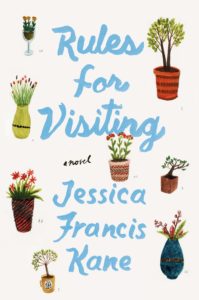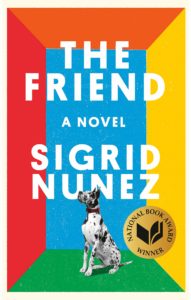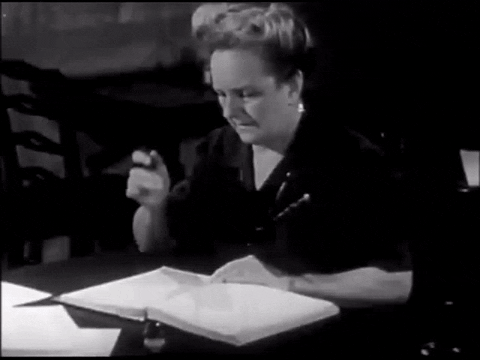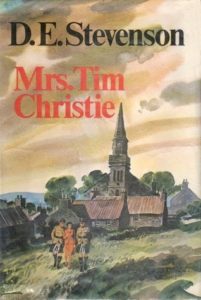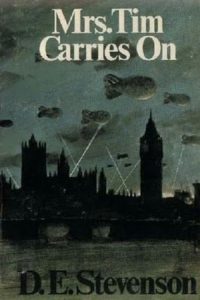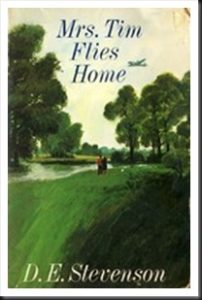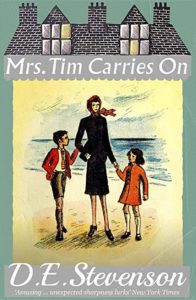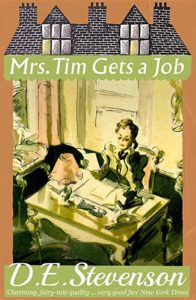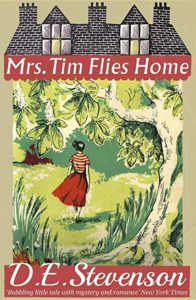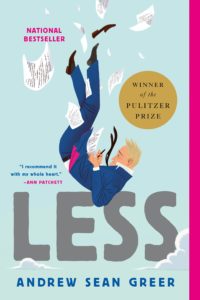Rules for Visiting by Jessica Francis Kane
I cherish my friends and firmly believe that friendship is one of the best things about living. But, I also recognize that friendship takes work. It requires one to stay in touch, to be proactive, to plan that lunch date, and to go out when you’d rather stay home and read a book. I’m not perfect, some friends have drifted away — others, I don’t see enough and I sometimes wonder if I prefer the concept of friendship to the actual participation.
With that preamble, you’ll see why I found Rules for Visiting immediately intriguing.
Here is May Attaway, a middle-aged landscape gardener who is introverted, socially awkward, and living with her father and a cat. She and her father live in a small town and have their routines. May and her father are equally unconventional and often cranky, but try not to be:
My father and I aren’t great at doing things at the same time as other people: planting on the last frost date, reading the latest bestseller, eating turkey [at holidays]. I don’t know if it’s chronic procrastination or a dislike of team sports.
May planted a Yew tree on the university grounds where she is employed as a landscape gardener. She carefully started this Yew tree with a cutting from a famous 3,000 year old specimen in Scotland and has carefully tended it for years. The beautiful tree inspired one of the university’s professors to write an award-winning poem which has brought the university many accolades. To reward May for her part in cultivating the tree, the university grants her a month of paid vacation.
May takes her time and many pages to figure out what she wants to do with this gift of unscheduled time. She reads an article about the death of an author, who sadly died while on tour promoting her first novel. The outpouring of grief from her friends was overwhelming and shared on a webpage which May obsessively pours through. People shared beautiful stories about Amber and it wasn’t her book or her writing, so much as her ability make people feel good being around her — to be a good friend:
What was obvious in post after post was that Amber had a talent for friendship, which, I suddenly understood, was something that one could be good at, like cooking or singing. You could be good at being a friend, and no sooner had I had the thought, than I knew I was not.
Inspired to learn to be a friend, May decides to visit four friends from her past. While she has uncertainties about these friends and her friendships with them — armed with hostess gifts, Emily Post’s guide to etiquette, and her rolling suitcase named Grendel — she sets off.
Her journey is filled with contemplation and mental journeys into the past. Her mother was a recluse and, as May herself is venturing into this uncomfortable territory, she ponders the plight (and perhaps the advantages) of being sequestered:
People feel sorry for the housebound, but it can be a position of strength, a refusal to meet the world on its terms… The recluse decides when and to whom she will speak, access is limited.
After perusing Emily Post, May makes some rules for her visits, and shares some delightful musings about visiting. She recounts that Hans Christian Anderson ruined his friendship with Charles Dickens by staying with him three weeks longer than planned. And these great quotes:
It was a delightful visit — perfect, in being much too short (Jane Austen)
Fish and visitors stink in three days. (Benjamin Franklin)
I won’t go into the details of her visits, except to say that she meets with perfectly appointed guest rooms with matching guest towels and planned itineraries, often including tours of local gardens — afterwards followed by the host’s Facebook posts about her visit. May muses on this:
…one of the questions I most wanted to ask my friends was: Can I see an average day in your life right now? A real day, not one curated for social media or filled with the best activities to entertain a visitor. On the one hand, it’s a simple question. On the other, it’s almost too intimate. And it might be impossible, because the presence of a visitor changes a day, no matter how close the friends are.
But May also gets to see her friends’ troubles — she wipes some tears, deals with precocious children, and receives unexpected affection. Her friends aren’t perfect and can’t possibly meet May’s expectations. But, she soon realizes one of the most important facets of friendship – overlooking the annoyances, the sharp edges, the unintended hurts — and learns to enjoy these friends just as they are — themselves.
This novel is not only about friendship and families — but also plants. Ms. Kane uses botanical interludes throughout the book. Delightful sketches of trees introduce each section with Latin names given in parentheses. These plant narratives provide cogent analogies between human and plant behavior. These were entertaining for me, but may not be interesting for non-plant people.
I thoroughly enjoyed Rules for Visiting — it’s a quiet gem of a novel about a complex, wry, yet insecure woman in pursuit of friendship and human connection. And this reader came away with a renewed sense of the importance of friendships — and gently reminded they require attention, forgiveness, risk, vulnerability — but mostly love.
In the last chapter we are given May’s Rules for Visiting:
1. Do not arrive telling stories about the difficulties of your trip.
2. Bring a gift.
3. Make your bed and open the curtains.
4. Help in the kitchen, if you’re wanted.
5. Unless you are very good with children, wait until you hear at least one adult moving around before getting up in the morning.
6. Don’t feed the pets.
7. Don’t sit in your host’s place.
8. If you break something, admit it.
9. Say goodnight before bed.
10. Always send a thank-you note.
An advanced readers copy was provided by Penguin/Random House.
A little romance
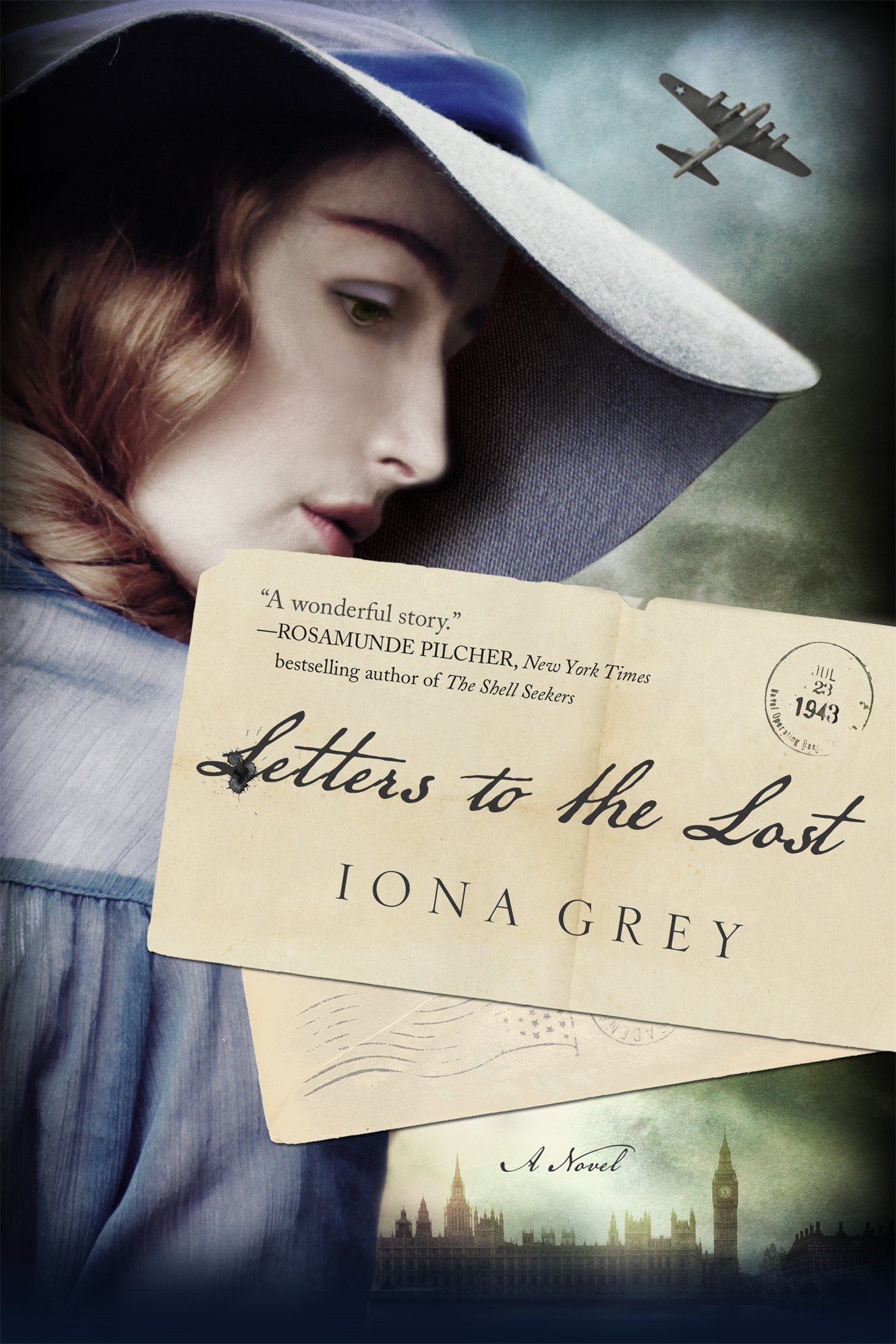 I don’t often read romance novels — at least not intentionally, but this spring I happened to dive into a couple of romantic tales which turned out to be praise-worthy, so here we go
I don’t often read romance novels — at least not intentionally, but this spring I happened to dive into a couple of romantic tales which turned out to be praise-worthy, so here we go
Letters to the Lost by Iona Grey
Here at Book Barmy, I’m often asked to review debut novels. This always presents a quandary, as many established, award winning authors and their books await me. But I admire any first time author who has the talent and perseverance to complete a novel – not to mention, weathering the gauntlet to publication. So I’ll give these first novels a good 50 pages to determine if I’ll carry on. Sorry to say, many don’t pass the 50 page test and I sadly put them aside.
Not only did Letters to the Lost pass my test, I was instantly sucked into the story from the first page and, in the end, was quite bowled over.
Normally, I try not to appropriate a book’s publicity blurb, but will make an exception — just read this:
Late on a frozen February evening, a young woman is running through the streets of London. Having fled from her abusive boyfriend and with nowhere to go, Jess stumbles onto a forgotten lane where a small, clearly vacant old house offers her best chance of shelter for the night. The next morning, a mysterious letter arrives and when she can’t help but open it, she finds herself drawn inexorably into the story of two lovers from another time.
In London 1943, Stella meets Dan, a US airman, quite by accident, but there is no denying the impossible, unstoppable attraction that draws them together. Dan is a B-17 pilot flying his bomber into Europe from a British airbase; his odds of survival are one in five. In the midst of such uncertainty, the one thing they hold onto is the letters they write to each other. Fate is unkind and they are separated by decades and continents.
In the present, Jess becomes determined to find out what happened to them. Her hope – inspired by a love so powerful it spans a lifetime – will lead her to find a startling redemption in her own life in this powerfully moving novel.
Not another dual-timeline story I thought, but Letters to the Lost is nicely constructed. The story seamlessly alternates between the homeless, frightened Jess trying to re-build her life, while hiding (squatting?) in her borrowed house and the romance of Dan and Stella during WWII — and is mostly told through their letters (I love me a book told through letters.)
During WWII, Stella’s marriage has proven to be loveless and she falls hard for Dan, an American pilot. Their affair and secret rendezvous take place in the abandoned house where Jess is hiding in present day. Jess opens a letter that arrives in the mail slot from Dan, now elderly and dying in America. He is writing to the last address he had for Stella in hopes of finding her again. This discovery leads to Jess finding the letters Dan wrote to Stella. Thus starts the journey that grabbed me, spanning sixty years and over 500 pages.
Stella’s story was the more fascinating for me, ranging from the frightening blackouts and bombs falling on London. But there are also church fetes, arguments over scones, the effects of rationing, and the luxury of canned peaches.
Jess modern story is bit more contrived. Will, working for a company that finds lost heirs, uses the company’s keys to enter the house in order to find any inheritance papers. He discovers Jess hiding in the house and after a few strange conversations agrees to let her continue to hide in the house. Together Jess and Will try to solve the mystery of what happened to Stella and grow closer and closer. As Jess reads the letters we read them with her, the gaps are filled by our visits to Stella’s world, and the story unfolds for both worlds.
Letters to the Lost is not a perfect novel, but its shortcomings are overshadowed by its many strengths. The ending left me both choked up and melancholy. The characters stayed with me long after I finished. I must admit it took me a while to recover from this engrossing read.
An digital advanced readers copy was kindly provided by St. Martin’s Press/Griffin via Netgalley
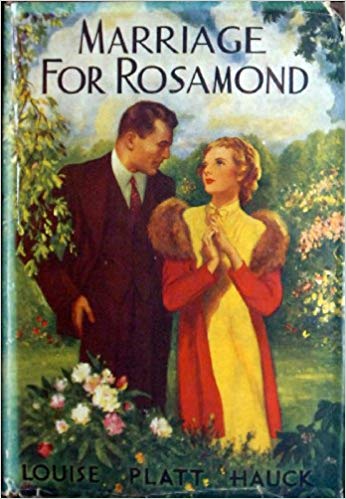 Marriage for Rosamond by Louise Platt Hauck
Marriage for Rosamond by Louise Platt Hauck
As Book Barmy fans already know, I volunteer at the Friends of the Library Bookstore…and every so often we get vintage books with delightful covers. Like Marriage for Rosamond – just look at the cover. Can you blame me for wanting it? For five dollars I took this home. (Volunteering yet still buying books — this is why Husband has gray hair.)
Marriage for Rosamond was written in 1937 and published by Madison Square Books which sports the following marketing blurb on the back with a listing of their titles:
Books for every taste and mood — outstanding novels, delightful romances, thrilling mysteries, two-gun Westerns.
I closed my eyes and pictured these books on musty bookshelves in knotty pine lake homes, with comfortably shabby furniture, porch swings, and long afternoons reading these novels in the shade. 
Turns out this was one of their romances — the chick-lit of the 1930’s.
The plot revolves around the innocent but privileged Rosamond who falls in love with Jim. But in this period piece they don’t just fall in love they ‘woo’, for pages and pages. I almost gave up but when they get married and Rosamond moves to Jim’s grand home in Kansas City the plot actually got more interesting and there were some simple, but unforeseen developments. Turns out Jim has a sickly brother Rich, who Jim dotes upon. Rich moves into their house and while he doesn’t seem that ill, he has trouble recovering from small health setbacks. Rosamond has mixed feelings, recognizing that Jim is being manipulated — but she decides to stick with her role as a loving and devoted wife:
The young wife learned hard lessons during these weeks. She learned to sit quietly by while Jim talked of Rich; his accident, the possible weakening of his reserve strength, his childhood illnesses. She learn to eat her meals with Jim sunk into depressed silence or starting up when one of the nurses came downstairs. She learned — and this was the bitterest lesson of all! — that she did not count at all with Jim, at least while Rich was so ill.
When Rosamond is called upon to be Rich’s full time caregiver — the situation becomes intolerable. Rosamond leaves, fleeing back to her devoted grandfather and their vast family home. All seems over with the marriage — but in the end the story revolves around to a satisfying ending.
What I found most interesting about Marriage for Rosamond was the author’s writing style — typical of the period. The literate vocabulary was a joy with proper usage of words such as ~~ benighted, quiddity, indubitably and vivant. And the often sentimental passages, which I found lovely, old-fashioned and somehow touching:
She dropped a velvet cheek against his hand…
Jim was too close to the weaving to see the pattern…
For me, this romantic novel was a master-class in 1930’s American domestic drama and while it was sometimes over-dramatic, it was never overwrought. I had a grand time reading Marriage for Rosamond.
Paris By the Book by Liam Callanan
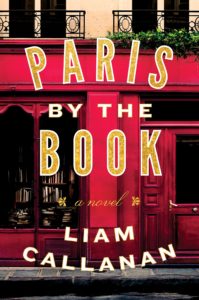 I am truly hopeless. Despite a house full of books, I’m nonetheless tempted by the librarian recommendation shelf at my branch library. Often there are gems that haven’t received much publicity. Paris by the Book seemed like just such a gem. The cover called my name and the description reached out to shake my hand. A setting in Paris, a cozy bookstore and a family mystery. Then there was the first sentence: “Once a week, I chase men who are not my husband.”
I am truly hopeless. Despite a house full of books, I’m nonetheless tempted by the librarian recommendation shelf at my branch library. Often there are gems that haven’t received much publicity. Paris by the Book seemed like just such a gem. The cover called my name and the description reached out to shake my hand. A setting in Paris, a cozy bookstore and a family mystery. Then there was the first sentence: “Once a week, I chase men who are not my husband.”
I had it checked out and under my arm in no time.
Milwaukee novelist Robert Eady is gone, but his wife, Leah and daughters aren’t too concerned. They’ve become accustomed to his ‘write-aways’ — when Robert, an author of children’s books, leaves for a few days of writing, and then returns. He always left a note saying when he’d be home again, and he always came back.
But this time he doesn’t leave his usual note but instead leaves his wife and daughters plane tickets to Paris. So to Paris they go and one of their leads takes them to a small, floundering English-language bookstore whose aging proprietor is eager to sell the shop.
So what do they do? They buy the shop and decide to live in Paris. Okay I really like these people. Especially Leah our narrator, who is usually hapless but always funny, honest, and snarky.
The daughters, who are mature beyond their years, integrate themselves easily into Parisian life and their new school — all while they continue to search for their father. But, we soon learn from Leah’s story that her marriage had its issues, and past hurts reveal themselves to her daughters:
We should have stayed in Milwaukee. Or we should have moved to the desert. Jupiter. Some place he’d never find us. Some place we’d never find him.
So the reader is drawn into the mystery — Robert may or may not be dead. Is Leah abandoned or widowed? Does she really want him back?
We learn about Paris through two of the couple’s favorite Paris things. Robert admired the Madeleine books and their fanciful depiction of Paris. Leah, on the other hand, adores the film The Red Balloon and its realistic version of the city just after the war.
Some parts of the story are nonsensical, but Paris by the Book is a fast-paced read and I didn’t bother to ponder the logic of the story line. I got caught up in Mr. Callanan’s depictions of Paris which are breathtaking and his unique characters who aren’t always likeable, but compelling in their own right
I didn’t love this book, but I certainly enjoyed it. Paris by the Book is a clever concoction — a rickety marriage, a faulty mother, a family mystery — all stirred up with books, bookshops and the stunning beauties of Paris as a backdrop.
I’ll leave you with this photo from the top of Notre Dame before the fire.
The Friend by Sigrid Nunez
I know, I know — it’s been ages since I posted here. No excuses, merely laziness combined with doing other things. My apologies. Good news, I have finished several books and they’re stacked up right here by the computer. I promise to try and do better, to post more often, and tell you about my reads.
The Friend by Sigrid Nunez
Remember THIS post wherein I made a vow to read more critically acclaimed books?
Well, folks here’s another one.
I caught an interview with Ms. Nunez on NPR when The Friend was published last year. She was smart, charming and eloquent. Later, when it won the National Book Award, I thought I’d better give it a try. I finally found it in my huge teetering stack pile of TBR’s and opened it one evening.
A short novel, at a little over 200 pages, it reads as a writer’s journal. The ‘friend’ in the title is our unnamed narrator’s ex-lover and literary mentor — a reprehensible womanizer with three wives (two ex; one current). As the book opens, the friend has recently committed suicide, leaving our narrator, his current wife, and his huge Great Dane, Apollo, traumatized.
No one wants to take Apollo. Our grieving narrator, living in a no-pets-allowed New York City apartment takes the giant dog home until something can be sorted out:
“It’s not his fault he’s not a cute little puppy. It’s not his fault he’s so big. And it might sound crazy, but I have this feeling that if I don’t keep him something bad will happen. If he has to move one more time, he could develop so many problems he’ll end up having to be put down. And I can’t let that happen. I have to save him.”
Wife One says, “Who are we talking about?”
The dog and our narrator both are suffering with grief and depression. The narration meanders around several major themes, the unexplained suicide of the mentor, the struggles of writing and teaching writing, and the narrator’s relationship with the Great Dane.
There are some very funny bits — as when our narrator takes Apollo to her therapy session and when she discovers that the languid dog perks up when she reads to him out loud. Simultaneously, there are some beautiful, heart wrenching passages, such as this one written in the writers journal style:
The dead dwell in the conditional, tense of the unreal. But there is also the extraordinary sense that you have become omniscient, that nothing we do or think or feel can be kept from you. The extraordinary sense that you are reading these words, that you know what they’ll say even before I write them.
Together our narrator and Apollo struggle through and come to a somewhat reluctant relationship — but just then the book ends abruptly and the last chapter left me up in the air.
In the end, this book is a stream of consciousness about love, friendship, life, suicide, pets, and writing.
There is no real plot, there are no resolutions, and the only fully developed character is the dog.
Yes, it won the 2018 National Book Award and yes, The Friend is beautifully written,
but I found it a beautiful disappointment.
Mrs. Tim Series
Back in the 70’s I discovered a copy of Mrs. Tim in a used book store — the war-time diary of the delightful Hester Christie—or ‘Mrs. Tim’ as she is called after her officer husband. The author, D.E. Stevenson, based this series from her own wartime diaries:
There is so much War News in News Bulletins, in Newspapers, and so much talk about the war that I do not intend to write about it in my diary. Indeed my diary is a sort of escape from the war . . . though it is almost impossible to escape from the anxieties which it brings.
I was so enthralled with Mrs. Tim’s daily happenings. I quickly found more in the series, and read them all with sighs of happiness. We see the war through the diary of this delightful wife and mother, her husband away at war, coping with domestic battles of her own. Mrs. Tim carries on with humor, wit, and a bit of snark.
There’s the daily routines of collecting gloves for soldiers overseas, making do with wartime rationing, and adjusting to an influx of Polish refugees. But Mrs. Tim also deals with an unwanted suitor, deftly handles a self important Air Raid Warden, and moving house. She tries to mask her fear when her husband goes missing in war-torn France, and shows bravery encountering a downed German aircraft (while shooting grouse in the Scottish countryside no less!). A rich aunt visits with inappropriate gifts and unwanted judgements, the cook is always in a bad temper, and she wrestles with a cranky old car.
So there you have it. A brave woman making a life during WWII.
Quietly fascinating domestic drama.
My old copies still live on my copious bookshelves — battered, worn, and with cracked spines. They’re written in diary format, so over the years I’ve found it easy and comforting to open a copy, at any place, to visit with Hester for a day.
Enter Scott over at Furrowed Middlebrow. An extraordinary fellow, with a keen interest in documenting and publishing largely forgotten British women writers from the early to mid-twentieth century. As a result, he launched Dean Street Press which has a delightful list of titles with sigh-worthy and (warning) very tempting covers.
And look what they’ve done — Dean Street press have just reprinted the Mrs. Tim series .
Just look at these covers — the artwork is lovingly reproduced from early editions.
Dean Street Press (and Scott) kindly sent me the digital edition of Mrs. Tim Carries On so I could talk about it here. I re-read it on my Kindle during the past few rainy days/nights and it still delights.
If you haven’t read D.E. Stevenson, be sure get yourself a couple of these beauties. This new edition of Mrs. Tim Carries On has a wonderful introduction by Alexander McCall Smith which will give you background on Mrs. Tim and D. E. Stevenson.
It’s awfully nice sometimes to treat yourself to fine books which, if you’re like me, you’ll enjoy and re-read for many years to come.
I may just join you – I keep sighing over those covers and isn’t it time to upgrade my broken old copies?
(Rationalizing is my own special super power.) 
Less by Andrew Sean Greer
I’ve decided I need to venture out of my safety zone and read more widely acclaimed books. You know, those books getting media attention, the runners-up, and the actual prize winners. Don’t get me wrong, I often read notable books and have reviewed them here – but the experiences are often checkered.
Less won the Pulitzer Prize for fiction in 2018
Here, all this time, Less thought he was merely a bad writer. A bad lover, a bad friend, a bad son. Apparently the condition is worse; he is bad at being himself.
One day Less receives a wedding invitation — his younger lover from his latest long term relationship is getting married to an equally younger man. He can’t go, he just can’t, so he books himself on a trip around the world. He goes through his stack of pleas for his attendance at various writers conferences, teaching assignments, interviews, publicity junkets and cobbles together an exotic itinerary. These are not big name events, but those offered to middle tier authors — many are unpaid, some will pay only his expenses. It matters not to Less, he can now legitimately reply to the wedding invitation saying he will be out of the country at the time of the dreaded wedding.
And so off we go with Less to Mexico, Morocco, Berlin, Japan, India – a sort of Eat Pray Love journey filled with typically uncomfortable ‘Lessian’ travails. (Side-note: Less believes he speaks fluent German and his translated conversations had me giggling out loud, knowing that’s how I must sound when I speak my long-studied-but-never-mastered French.)
There, I’ve told you about the basic plot of this slim novel, but wait — wait there’s so much more.
You may have to barrel through the first few chapters — this is where Mr. Greer’s writing feels a bit uneven and disconnected — I almost gave up, but happy I didn’t. By the time you (and Less) are in Morocco — the writing meshes and starts to soar.
The prose goes from being sharp and insightful ~~
“Strange to be almost fifty, no? I feel like I just understood how to be young.” “Yes! It’s like the last day in a foreign country. You finally figure out where to get coffee, and drinks, and a good steak. And then you have to leave. And you won’t ever be back.”
His brain sits before its cash register again, charging him for old shames as if he has not paid before.
~~ to poignant
How can so many things become a bore by middle age — philosophy, radicalism, and other fast foods — but heartbreak keeps its sting?
…the time when any couple has found its balance, and passion has quieted from its early scream, but gratitude is still abundant; what no one realizes are the golden years.”
~~ and this gets my nomination for best sentence ever:
He kisses—how do I explain it? Like someone in love. Like he has nothing to lose. Like someone who has just learned a foreign language and can use only the present tense and only the second person. Only now, only you.
Not gay, you say, well neither am I– but no matter who you are, you’ll recognize a little (or a lot) of Less in yourself. As he travels he tries to write but instead muses back his life, his loves, his mistakes – all the regrets. Mr. Greer, himself gay, has written a humorous yet gentle novel all about the all-too-human fear of aging, and discovering that middle-age can bring grace and even love.
I won’t give away the ending, but let it be said – I cried…
A digital review copy was kindly provided by Hachette Book Group via NetGalley
—————————————-
As much as I enjoyed Less, I wondered about this slim, comic novel’s qualifications to win the Pulitzer and did some research – turns out Pulitzer’s guidelines are amazingly loose.
The winning book, be it a novel or short-story collection, must have been written by an American, and should, ideally, be in some way about American life.
HERE’S a list of other Pulitzer prize winning fiction. Still not sure it ranks up there with some of the others I’ve read, but then again, no one asked me to be a judge.
And, as Less learns it’s pronounced PULL-it-sir, not PEW-lit-zer.


